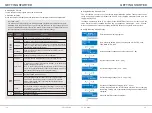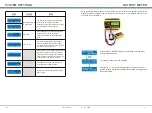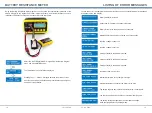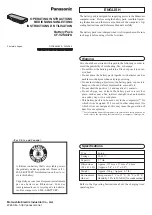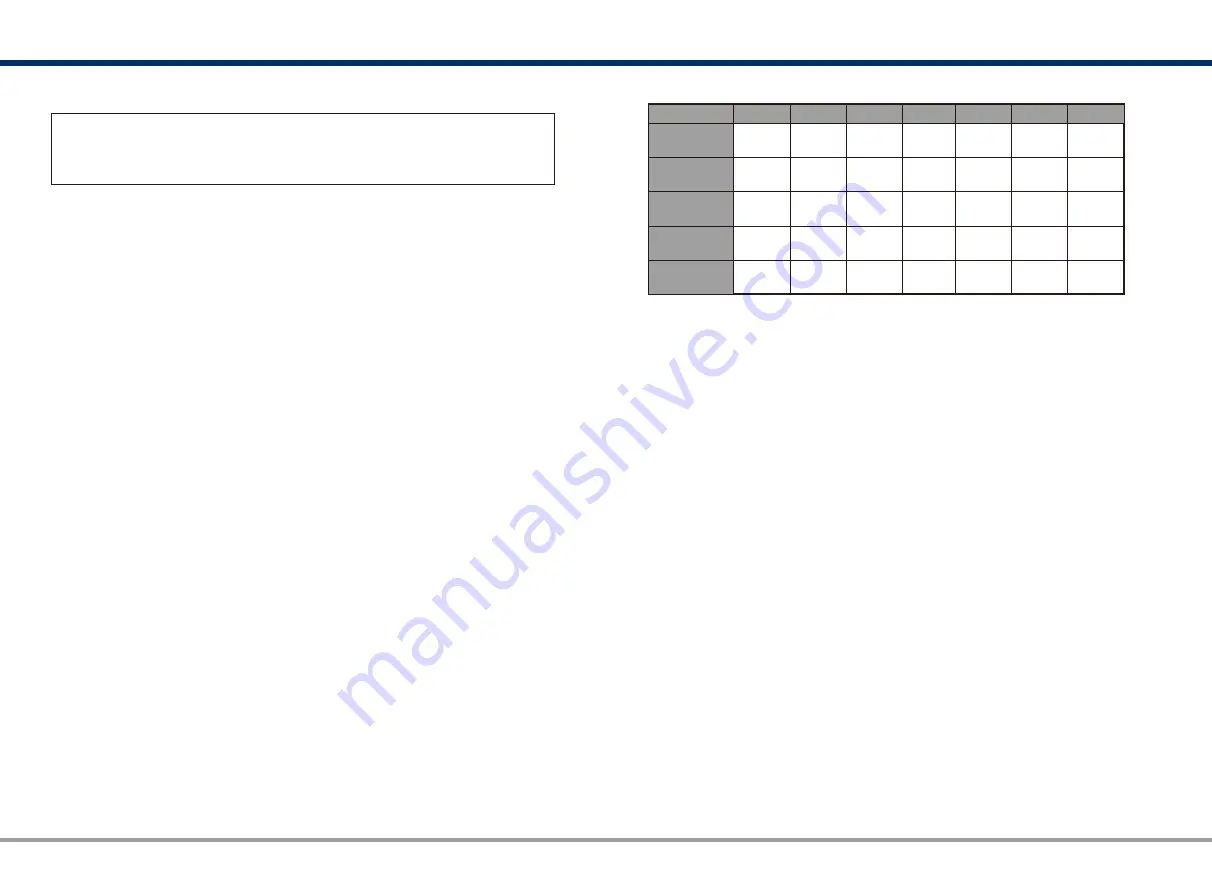
05 ·
· 04
YZ-114 PLUS
YZ-114 PLUS
WARNINGS AND SAFETY NOTES
Be sure to read and fully understand the instruction manual before use. Follow directions in the
instruction manual and use this charger only as it is intended.
WARNING: This product is equipped with "LiHV" mode. When using LiHV mode, be certain
that the LiPo battery is a HV (high-voltage) type which is 3.8 V per cell. NEVER attempt to
use the LiHV mode with conventional 3.7 V cellLiPo batteries, as it can cause fires and
explosions leading to personal injuries and property damage.
Children under 14 years of age must be supervised by an adult while using this product.
●
This product is only intended for indoor use.
●
Never attempt to charge batteries which is incompatible with this charger. Using incompatible
batteries can lead to serious accidents such as fires and explosions which could cause personal
injury and property damage.
●
Do not use this product for unintended uses. Never disassemble or modify this product.
●
Overcharging a battery can cause permanent damage to the battery. To use batteries safely,
be sure to follow directions from battery manufacturer, and to charge and discharge within the
parameters the battery supports.
●
Do not apply shock or vibration to the product, as it can lead to malfunction.
●
Do not use this product near materials that could cause a fire which include but not limited to
materials such as paper, plastic, vinyl, leather, wood.
●
This product contains sensitive electronics. Do not use or store this product in places which
could have high humidity or places which could expose the product to water and moisture.
●
Do not use or store this product on carpet, cluttered workbench, inside a car, and places
exposed to direct sunlight.
●
Do not use this product near conductive metal surfaces and objects. Unexpected short circuits
of batteries and other electronics could result.
●
This product contains a computer-controlled cooling fan which could start spinning without
warning. Do not touch or place objects into the fan, as it can be very dangerous.
●
Beware of polarity when connecting input power and batteries to prevent short circuits and
other damage.
●
Do not connect both AC and DC power into this product simultaneously.
●
The allowable DC input voltage for this product is 11 ~ 18 V DC. Charge power is 50 W.
●
The allowable AC input voltage for this product is 100 ~ 240 V AC. Charge power is 50 W.
●
Do not leave this product unattended while in use. Always look out for anomalies.
●
This product can become hot while in use. Be cautious about temperature to avoid burns. If
product becomes hot while in use, stop and let cool.
●
Stop using product immediately in case of anomalous events such as smoke or smell is
detected.
●
Disconnect product from power supply and battery while not in use.
●
If you notice any anomalies during use, immediately stop using the product and contact the
point of sale or local distributor for further instructions.
●
Keep away from reach of children.
●
Keep this instruction manual for future reference.
■
Standard Battery Charge/Discharge Parameters
3.7V/cell
3.7V/cell
4.2V/cell
3.8V/cell
≦
1C
LiPo
LiIon
3.6V/cell
4.1V/cell
≦
1C
3.3V/cell
3.6V/cell
3.3V/cell
≦
4C
LiFe
3.0-3.3V/cell 2.9-3.2V/cell 2.6-2.9V/cell
1.2V/cell
1.5V/cell
n/a
1C-2C
NiCd
1.2V/cell
1.5V/cell
n/a
1C-2C
MiMH
2.0V/cell
2.46V/cell
n/a
≦
0.4C
Pb
0.1-1.1V/cell 0.1-1.1V/cell
1.8V/cell
LiHV
3.7V/cell
4.35V/cell
3.85V/cell
≦
1C
3.1-3.4V/cell
Nominal Charge
Voltage
Max. Charge
Voltage
Storage Charge
Maximum Fast
Charge Current
Minimum Discharge
Voltage
Be careful to choose the correct and suitable charge voltage for the battery to be charged.
Incorrect settings can cause damage to the battery or can cause an accident involving fire and/or
explosion.
Never attempt to charge or discharge the following types of batteries.
● A battery pack consisting of different type of batteries, including those from different
manufacturers.
● A battery which has already been charged or has only been slightly discharged.
● A non-rechargeable battery. There is a risk of fire or explosion.
● A battery that requires a different charging method from NiCd, NiMH, LiPo, or gel cell (Pb, lead
acid) battery. Never charge a battery that is not supported by the charger.
● A faulty or damaged battery.
● A battery containing an internal charge circuit or a protection circuit.
● A battery that is installed and/or electrically connected to other components.
● A battery that is not expressly stated by the manufacturer to support currents that the charger
will deliver during the charging process.
Check the following before starting the charging process:
● Did you select the appropriate charge or discharge program for the battery?
● Did you set an appropriate current for charging or discharging the battery?
● Did you check the battery's voltage? Lithium batteries can be wired internally in series or in
parallel. A 2 cell pack can be either 3.7 V (parallel) or 7.4 V (series).
● Have you checked that all connections are firm and secure?
● Be sure that there are no intermittent contacts at any point in the circuit.
WARNINGS AND SAFETY NOTES



















